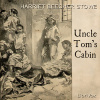Philippe Aubert de Gaspé - Canadians of Old
Philippe Aubert de Gaspé
100%
Speed
Summary
In his mid-70s, Philippe Aubert de Gaspé took on the project of recording the culture and heritage of French Canada, especially that of the late 1700s, the world of his youth. The result, published in French in 1863, was the historical fiction «Les Anciens Canadiens (literally, “The Canadians of Old”).In this book, inspired by the historical novels of Sir Walter Scott, Aubert de Gaspé collects the customs, traditions, folk tales, superstitions, and songs of the Quebec people, weaves in memories of life in his own ancestral home, and sets all this within the momentous historical events that transformed Canada in the 18th century. Much of the book is historically accurate, based sometimes on the author’s own experiences and sometimes on memories passed on to him by eyewitnesses.
For example, the account of being sent to debtor’s prison came from the author’s own experience.
The fantastic ghost story of “La Corriveau” was based on the true story of a murderess whose body was on public display in iron chains (a “cage”) for weeks after her execution. That initial incident had already blossomed into material for lurid legend; Aubert de Gaspé was the first to incorporate this legend into a work of literature.
The book’s storyline hinges on the British Conquest of Quebec in 1759 and the ensuing trauma caused to French Canada. Fictional characters are intertwined with historical figures such as a famous shipwreck survivor and specific military officers.
This book is an engaging window on cultural history and one of the first great works of French Canadian literature.
The English translator of this edition, Charles G. D. Roberts, was himself a distinguished author. He has been called “the father of Canadian poetry.” — Summary by Bruce Pirie
*Warning: Listeners may be offended by some of the racial labels and depictions. Words that were considered acceptable in the nineteenth century may be offensive today. It is LibriVox policy to leave the original wording as the author intended.*
Authorization
By logging in, you agree to the terms and conditions.












No comments